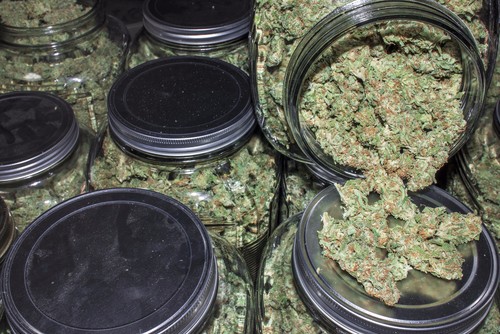Opioid addiction is a severe and widespread problem in the United States, with millions of people suffering from this condition. While opioids can be effective painkillers, they are also highly addictive, and many people end up becoming dependent on them. One possible solution to this problem is medical marijuana, which has been shown to have pain-relieving properties without the same level of addiction potential. In this blog post, we will discuss the impact of medical marijuana on opioid addiction in New York State.
The Opioid Epidemic in New York State
New York State has been hit hard by the opioid epidemic, with thousands of people dying each year from overdoses. According to the New York State Department of Health, there were over 3,000 opioid overdose deaths in the state in 2019, up from just over 1,000 in 2010. In response to this crisis, the state has taken a number of steps to combat the problem, including increasing access to naloxone (a medication that can reverse opioid overdoses), expanding treatment options, and cracking down on prescription drug abuse.
Medical Marijuana and Opioid Addiction
One potential solution to the opioid epidemic is medical marijuana. While marijuana is still illegal at the federal level, a number of states have legalized its use for medical purposes. One of the primary reasons for this is that marijuana has been shown to have pain-relieving properties. In fact, a number of studies have found that medical marijuana can be just as effective as opioids for managing chronic pain, with fewer side effects.
In addition to its pain-relieving properties, medical marijuana may also be able to help people who are struggling with opioid addiction. Some studies have found that medical marijuana use is associated with lower rates of opioid use and opioid-related deaths. For example, a 2018 study published in the Journal of the American Medical Association found that states with medical marijuana laws had lower rates of opioid overdose deaths than states without such laws.
The Impact of Medical Marijuana on Opioid Addiction in New York State
In 2014, New York State legalized medical marijuana, allowing patients with certain qualifying conditions to use marijuana to manage their symptoms. While the state’s medical marijuana program is relatively new, there is some evidence to suggest that it may be helping to reduce opioid addiction in the state.
For example, a 2018 study published in the Journal of Health Economics found that states with medical marijuana laws had lower rates of opioid prescribing than states without such laws. This suggests that medical marijuana may be serving as a substitute for opioids in some cases. In addition, a 2020 study published in the Journal of Addiction Medicine found that medical marijuana use was associated with a 17% reduction in opioid use among chronic pain patients in New York State.
It is important to note that medical marijuana is not a silver bullet solution to the opioid epidemic. It should be used as a complementary treatment option, in conjunction with other evidence-based treatments such as medication-assisted treatment and behavioral therapy. Additionally, the use of medical marijuana should be carefully monitored to ensure that it is being used safely and effectively.
Another potential concern is that the use of medical marijuana could lead to an increase in the recreational use of marijuana. While this is a possibility, it is important to note that medical marijuana programs are typically heavily regulated and restricted to individuals with specific medical conditions. Additionally, many states with medical marijuana programs have not seen significant increases in recreational use.
As a law firm that specializes in healthcare law, Cole, Sorrentino, Hurley, Hewner & Gambino, P.C. can provide legal guidance and support related to The Impact of Medical Marijuana on Opioid Addiction cases in New York State. Here are a few ways in which our firm can help:
Legal Advice: Our attorneys can provide legal advice and guidance to healthcare providers and facilities that are considering using medical marijuana as a treatment option for patients with opioid addiction. We can help providers navigate the complex legal and regulatory landscape surrounding medical marijuana use in New York State.
Compliance: We can assist healthcare providers and facilities with ensuring that their use of medical marijuana is in compliance with all applicable laws and regulations, including New York State’s medical marijuana program regulations and federal laws related to controlled substances.
Risk Management: Our firm can help healthcare providers and facilities assess and manage the risks associated with using medical marijuana as a treatment option for opioid addiction. We can help providers develop policies and procedures that mitigate these risks and ensure the safe and effective use of medical marijuana.
Advocacy: We can also advocate for policy changes at the state and federal levels that promote the use of medical marijuana as a treatment option for opioid addiction. Our attorneys can work with policymakers and other stakeholders to help shape healthcare policy in a way that supports the use of medical marijuana for this purpose.
Our firm has the knowledge and experience to provide legal guidance and support related to The Impact of Medical Marijuana on Opioid Addiction cases in New York State. We are committed to helping healthcare providers and facilities navigate this complex issue and provide the best possible care to patients with opioid addiction.
